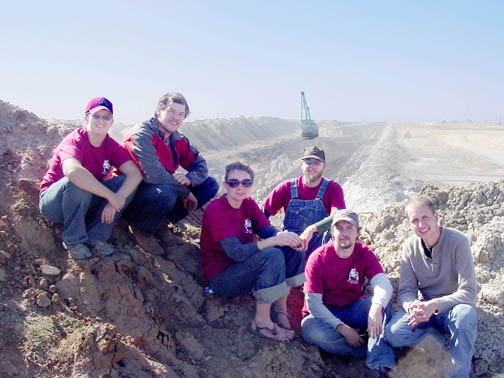
FAYETTEVILLE, Ark. – The University of Arkansas Soil Judging Team won the Region IV Collegiate Soil Judging Contest hosted by Texas A&M University Nov. 7-11.
The first place overall finish was the highest placing for the UA team in over 11 years and earned it the opportunity to compete in the National Soil Judging Contest, for the third year in a row, at the University of West Virginia in the Spring of 2012.
Team members are Alden Smartt of Gentry, Stephanie Kulesza of Monticello, Matt Rich and Christine Cooley of Fayetteville, Troy Warden of Batesville and Michael Kirch of Baytown, Texas.
Team coach Kristofor Brye, professor of crop, soil and environmental sciences in the Dale Bumpers College of Agricultural, Food and Life Sciences, said that in addition to first place overall, the team placed second in the team-judged pit and had the first (Alden Smartt), second (Stephanie Kulesza), and fourth (Michael Kirch) high individual scores. Oklahoma State University and Texas Tech University placed second and third overall, respectively.
Brye said, "Soil judgers use their eyes and hands to characterize numerous properties of the various horizons or layers that make up a soil profile. Once horizons are characterized and differentiated using a specific nomenclature, the properties of the soil and where it is in the landscape are used to make a variety of interpretations about that soil. Many important societal needs rely on people having field skills to describe soils and make interpretations about them."
Teams from Texas Tech, Oklahoma State, the University of Arkansas at Fayetteville, the University of Arkansas-Monticello, and Louisiana State University practiced for three days around the Brazos River and College Station. The region is still suffering from one of the worst droughts in decades. Twenty-one undergraduate student participants judged four soil pits individually and judged one soil pit collectively as an institutional team.
Contacts
Howell Medders, Coordinator
AGCS
575-5647, hmedders@uark.edu